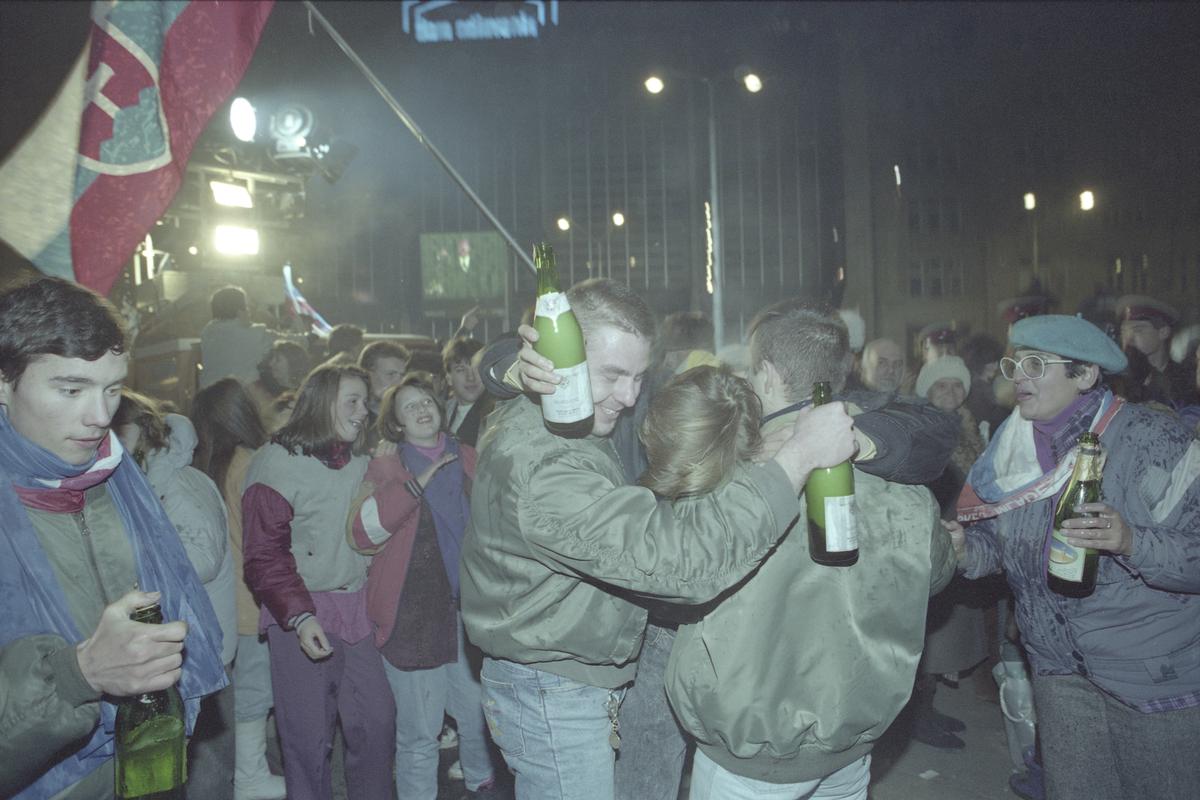Rick Zednik was a co-founder of The Slovak Spectator. He is a Slovak-American dual citizen who lives in Brussels, Belgium.
My memories of New Year’s Eve in Bratislava’s Námestie SNP as the calendar flipped from 1992 to 1993, are that the air was frigid and the pyrotechnics were underwhelming, but the soundtrack featured three celebratory riffs. First, as the clock struck 12:01 am, hundreds of Slovaks spontaneously joined in to sing their newly independent republic’s national anthem, “Lightning over the Tatras.”
Then, a man unafraid of seizing control took the microphone. “Slovakia is yours,” roared Prime Minister Vladimír Mečiar. “And you will be successful!” The crowd cheered enthusiastically, waving the white, blue, and red flag of the world’s youngest state.
Minutes later, Johann Strauss’s “Blue Danube” came on the loud-speaker. Bundled-up couples started what vaguely resembled waltzing around the square. They were still dancing at 12:30 am, when I went to bed.
Unmissable opportunity
In more sober moments, however, many Slovaks I spoke to that day expressed apprehension about the so-called “Velvet Divorce” that left them citizens of Czechoslovakia’s smaller, poorer part. Zuzana, a university student married to a Czech man, said independence only made future economic and political conditions even less certain than they had been already.

Yet, a taxi driver – we’ll call him Jozef – struck a patriotic note. “This is Slovakia’s big opportunity,” he said, his hands briefly leaving the wheel to illustrate the magnitude of the moment. Then, as his hands returned to steer the vehicle through a right-hand turn, Jozef added, “It is one the people would be foolish to miss.”
Who would prove to be right, Zuzana, the pessimistic university student, or Jozef, the optimistic taxi driver? With the benefit of a quarter century’s hindsight, the answer is now clear: both.

 Slovaks celebrate New Year 1993 and the emergence of the independent Slovak Republic on the SNP Square in central Bratislava. (source: TASR archive)
Slovaks celebrate New Year 1993 and the emergence of the independent Slovak Republic on the SNP Square in central Bratislava. (source: TASR archive)